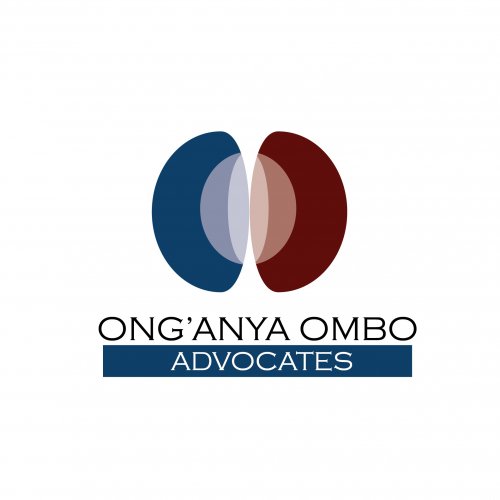Best Banking & Finance Lawyers in Kenya
Share your needs with us, get contacted by law firms.
Free. Takes 2 min.
Or refine your search by selecting a city:
List of the best lawyers in Kenya
Legal guides written by Adroit Law LLP:
- Kenya Launches Digital Nomad Visa: A Gateway for Remote Workers
- Navigating the Payment System License Maze in Kenya
- Navigating the Complexities of Mining Licenses and Permits in Kenya: A Look into Artisanal and Large-Scale Operations
About Banking & Finance Law in Kenya
Banking and finance law in Kenya involves the regulation and governance of financial institutions such as banks, insurance companies, and other entities involved in lending, borrowing, and managing money. The sector is essential for the economy, influencing both individual and corporate financial health and stability. The Central Bank of Kenya plays a pivotal regulatory role, ensuring compliance with national and international regulations to maintain financial system integrity and protect consumers.
Why You May Need a Lawyer
There are numerous scenarios where individuals or businesses may need the expertise of a banking and finance lawyer in Kenya. These include negotiating loan agreements, dealing with issues related to default or debt recovery, ensuring compliance with financial regulations, managing investments, resolving disputes with banks or other financial institutions, and dealing with financial fraud or misconduct.
Local Laws Overview
The key laws governing banking and finance in Kenya include the Banking Act, the Central Bank of Kenya Act, the Sacco Societies Act, and the Microfinance Act. Additionally, the financial sector must adhere to the regulations set by the Central Bank and the Kenya Deposit Insurance Corporation, which provides deposit protection to customers. International standards, such as anti-money laundering and combating the financing of terrorism, are also enforced. Contracts relating to financial transactions are subject to the Contract Act and other commercial laws.
Frequently Asked Questions
What legal framework governs banking operations in Kenya?
The banking operations in Kenya are primarily governed by the Banking Act, the Central Bank of Kenya Act, and regulations issued by the Central Bank of Kenya.
How does the Central Bank of Kenya regulate financial institutions?
The Central Bank of Kenya regulates financial institutions through licensing, monitoring compliance with laws and regulations, setting monetary policy, and ensuring financial stability.
What are my rights as a bank customer in Kenya?
As a bank customer in Kenya, you have rights to transparent information, confidentiality, protection from unfair practices, and the ability to resolve disputes through appropriate channels.
What should I do if I suspect fraudulent activity on my account?
If you suspect fraudulent activity, report it immediately to your bank, file a complaint with the Central Bank of Kenya, and consider involving law enforcement if necessary.
How are digital financial services regulated in Kenya?
Digital financial services in Kenya, such as mobile money, are regulated by the Central Bank of Kenya, which sets guidelines to ensure security, transparency, and consumer protection.
Can I take legal action if a bank defaults on a contract?
Yes, you can take legal action against a bank for breach of contract, subject to the terms and conditions of the agreement, and seek remedies through the courts or alternative dispute resolution mechanisms.
What types of financial disputes can be resolved through mediation?
Mediation can resolve disputes related to loan agreements, customer service issues, investment agreements, and other conflicts with financial institutions.
What is the role of the Kenya Deposit Insurance Corporation (KDIC)?
The KDIC provides deposit insurance to bank customers, ensuring compensation up to a specific limit in case of a bank’s collapse, thereby promoting confidence in the banking system.
What tax considerations should I be aware of in banking and finance transactions?
Banking and finance transactions in Kenya are subject to various taxes, including excise duty on financial services, and should be guided by advice from legal and tax professionals to ensure compliance.
What happens if a bank in Kenya becomes insolvent?
If a bank in Kenya becomes insolvent, KDIC steps in to protect depositors by providing compensation for insured deposits and managing the bank’s resolution process.
Additional Resources
For further assistance and information, you may reach out to the Central Bank of Kenya, the Kenya Bankers Association, the Law Society of Kenya for legal representation, and consumer protection agencies. Their resources and guidance can be invaluable when navigating complex banking and finance issues.
Next Steps
If you require legal assistance in banking and finance, consider contacting a law firm specializing in this field. It is crucial to select a lawyer with proven experience and knowledge of Kenyan banking and finance laws. You can begin your search through the Law Society of Kenya’s directory or seek recommendations from industry professionals. It's advisable to prepare thoroughly by documenting any financial transactions, correspondences, and pertinent details related to your legal issue before meeting with a lawyer.
Lawzana helps you find the best lawyers and law firms in Kenya through a curated and pre-screened list of qualified legal professionals. Our platform offers rankings and detailed profiles of attorneys and law firms, allowing you to compare based on practice areas, including Banking & Finance, experience, and client feedback.
Each profile includes a description of the firm's areas of practice, client reviews, team members and partners, year of establishment, spoken languages, office locations, contact information, social media presence, and any published articles or resources. Most firms on our platform speak English and are experienced in both local and international legal matters.
Get a quote from top-rated law firms in Kenya — quickly, securely, and without unnecessary hassle.
Disclaimer:
The information provided on this page is for general informational purposes only and does not constitute legal advice. While we strive to ensure the accuracy and relevance of the content, legal information may change over time, and interpretations of the law can vary. You should always consult with a qualified legal professional for advice specific to your situation.
We disclaim all liability for actions taken or not taken based on the content of this page. If you believe any information is incorrect or outdated, please contact us, and we will review and update it where appropriate.
Browse banking & finance law firms by service in Kenya
Kenya Attorneys in related practice areas.
Browse banking & finance law firms by city in Kenya
Refine your search by selecting a city.

















